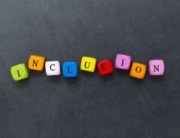The US Department of Justice has put all employers on notice: Agreements among competitors not to hire each other’s employees or otherwise limit wages or benefits — “anti-poaching agreements” — are not allowed. And as staffing professionals frequently engage with competitors in the normal course of business, the Department of Justice may hold staffing firms to the scrutiny of criminal proceedings.
In October 2016, the department and the Federal Trade Commission published guidance advising employers — and, specifically, professionals that support employers — against entering into formal or informal “non-poaching” agreements. In announcing the settlement of an anti-poaching case earlier this year, USA v. Knorr-Bremse AG and Westinghouse Air Brake Technologies Corp., the Department of Justice warned subsequent investigations would likely include a criminal component. (The Knorr-Bremse case did not include criminal charges because the anti-poaching agreements had stopped before the antitrust guidance was published.)
Knorr-Bremse is the first federal prosecution and settlement of an antipoaching case since 2010, when the Department of Justice pursued and resolved the “Hi Tech” anti-poaching cases against Adobe, Apple, Google, Pixar, Intel and Intuit. Shortly after settlements with the federal government, a class-action civil case commenced against the same defendants, alleging violations of California’s antitrust statute and right-to-compete laws. The civil class action resulted in $400 million paid in settlements to the certified class of 65,000 employees and the attorneys. Suffice it to say, a lot of money is at stake.
Staffing professionals need to be aware that their customers do not use staffing firms to engage in activities that the department might classify as antipoaching. Staffing firms need to be vigilant to inferences or possible evidence of potential anti-poaching agreements because email, conversations and other inferences — not necessarily formal written agreements detailing antipoaching behavior — may form the basis for prosecution.
The Department of Justice warns against:
- Discussions or agreements limiting compensation and/or benefits to those of competitors in the same industry.
- Conversations or emails where companies agree not to solicit or hire each other’s employees.
- Exchanges of compensation, benefit employment or recruitment strategies with other employers in the same industry.
To better secure themselves from claims of anti-poaching — whether with their competitors or due to the follies of their clients — staffing firms should:
- Provide regularly scheduled awareness and compliance training to staff, recruiters and executives.
- Create written policies to prevent anti-poach agreements.
- Consult with counsel about an antitrust audit as soon as any issues or concerns are identified.
Moreover, staffing firms may want to take advantage of the “amnesty” program offered by the Department of Justice should they become privy to information about anti-poaching agreements as the government offers to protect reporters from criminal prosecution, fines and jail time.
A failure to comply with all antitrust laws, including the bar on anti-poaching, will more likely invoke the significant disruption, costs and scrutiny of civil and criminal prosecution. Therefore, if you encounter any suggestion, communication or direction that arises as part of an industry meeting or conference, internally, from a representative of a competitor or otherwise, you should seek advice from in-house or outside counsel immediately.







